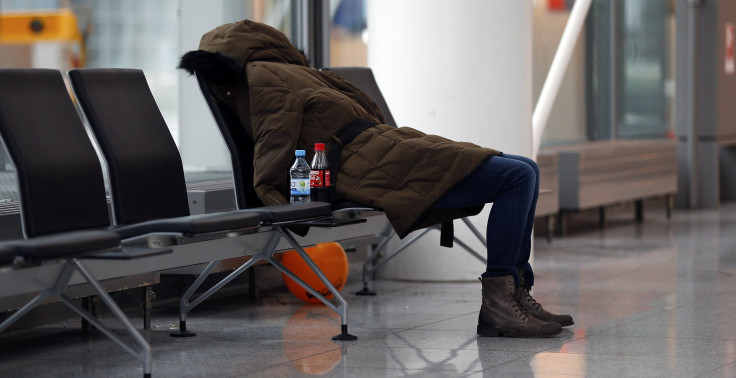Teens Are Becoming More Sleep Deprived, Study Finds

The number of teenager experiencing sleep deprivation has increased dramatically over the last two decades, according to the findings of a new study.
The study was conducted by researchers from Columbia University's Mailman School of Public Health and included more than 270,000 adolescents. These participants were surveyed from 1991 through 2012 and asked to report how often they got seven or more hours of sleep at night.
The researchers found that female students, racial/ethnic minorities and students of lower socioeconomic status are particularly affected, with teens in these categories less likely to report regularly getting seven or more hours of sleep each night compared with their male counterparts, non-Hispanic white teenagers and students of higher socioeconomic status, respectively.
"This finding implies that minority and low socioeconomic status adolescents are less accurately judging the adequacy of the sleep they are getting," Katherine W. Keyes, assistant professor of Epidemiology at the Mailman School of Public Health and lead author, said in a press statement.
Researchers highlighted that the biggest decrease in the percentage getting seven hours of sleep per night was among 15-year-olds. According to the study authors, 72 percent reported regularly getting seven-plus hours of sleep per night in 1991; by 2012, in the same age group, 63 percent of adolescents reported regularly receiving seven or more hours of sleep per night. The largest declines for all adolescents occurred between 1991 and 1995 and 1996 and 2000.
"Although the underlying reasons for the decreases in hours of sleep are unknown, there has been speculation that increased Internet and social media use and pressures due to the heightened competitiveness of the college admissions process are adding to the problem," noted Keyes. "Declines in self-reported adolescent sleep across the last 20 years are concerning and suggest that there is potentially a significant public health concern that warrants health education and literacy approaches."
Recently, the National Sleep Foundation (NSF) released a new set of guidelines related to the amount of sleep a person should get each night.
Sleep deprivation is harmful to both mental and physical health. People who don’t get enough sleep experience many ailments and health problems. These include weight gain, heart attacks, heart failure, high bloody pressure, stroke, diabetes and depression.
According to a WebMD report, it also kills a person’s sex drive. A study also highlighted that many men with sleep apnea also have low testosterone levels.
Findings of the current study titled "The Great Sleep Recession: Changes in Sleep Duration Among U.S. Adolescents, 1991-2012" are published online in Pediatrics.
To contact author, email: sammygoodwin27@gmail.com




















